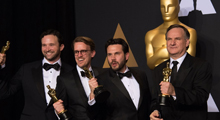![]()
(Alice Lowe at her recent visit to the NFTS)
We asked writer, director & actress Alice Lowe to continue our alt-film list series so adeptly started by director and visiting NFTS tutor Corin Hardy, who has so far tackled alternative Christmas and Valentines films! Given that Alice’s BIFA nominated ‘stunningly psychotic feature debut’, Prevenge, is about a woman who believes her unborn child is telling her to kill people and which she wrote, starred in, and directed it whilst 7-8 months pregnant with her first child, we thought she would be the ideal candidate for an alternative Mother’s Day film list! NFTS graduate, Matteo Bini edited Prevenge– if you would like to follow in his footsteps, we have open days coming up for our Editing MA on the 24th March and the 26th April – sign up here!
Known for her work as a UK television comedy actress, Alice Lowe made her move into film with her screenwriting debut Sightseers, directed by Ben Wheatley, in which she also starred as the hapless Tina. After premiering at Cannes, Sightseers went on to receive several accolades including Empire’s ‘Best British Film’, as well as acting and screenplay awards for Alice. So without further ado, here is Alice’s top ten alternative Mother’s Day films:
![]()
Carrie
One of my all-time horror films, eminently re-watchable. Firstly because you’re really hoping it’s going to work out okay this time for awks teen Carrie. Secondly because of the brilliant lead performances. Piper Laurie is so awesomely unhinged as Carrie’s god-and-sex-fearing, controlling mother, it borders on the kinky. The intensity of their relationship was a real eye-opener for me when I first saw it. The sometimes unhealthy claustrophobia and near cannibalism of a mother-daughter relationship is so rarely demonstrated on screen. That ‘you are part of my body therefore I can do what I like with you’ psychological element of motherhood, whether it be literal, psychic, or verbal annihilation. She’s a blummin’ nightmare! Forget the usually unfair teen lament about one’s mother, it really is all her fault. Poor Carrie. Laurie’s orgasmic stabbings in the glory of God, and her Christ-like death makes her the ultimate mother-as-martyr nightmare figure. And some of it is funny too! ‘Dirty pillows!’ She gives Kathy Bates a run for her money in the blaspheme-avoiding psycho stakes.
![]()
Alien
Body horror at its most iconic. Giger giving anatomical nightmares form through his extraordinary design. Casting a woman as ‘Ripley’ was a masterstroke. This sci-fi delves into our fears of ‘mother as monster’. In a sense, Ripley is the ‘final girl’. We kind of don’t know she’s the lead, until the death of the captain means she has to take over as second-in-command. Her sensible-ness makes her a Cassandra of the crew. She is the only member who forewarns about whether it’s a good idea to expose planet earth to this new life form. And it’s her caution that helps her survive. Not you usual ‘hero quality’. And I maintain that what makes this film so compelling is Weaver’s amazingly emotional performance. She shows fear. And that’s what makes her truly brave. Not the unrealistic bravado of your bog-standard Hollywood action hero. It propels us into belief of the whole terrifying concept. We see Ripley metamorphose into a heroine. And uniquely the creature, by its ferocity to survive, and its intelligence, begins to feel feminine. ‘Get away from her you bitch!’ Cat fight in space! By the end of the trilogy Ripley has an affinity with and respect for the beast. Like Schneider with Jaws, as deadly enemies, they are two halves of one whole, condemned to unity for all space and time. Watch this with your mum. Because it will be funny. Halfway through she might say, ‘can’t we just watch ‘Beaches’?’
![]()
Grey Gardens
This classic documentary by the Maysle brothers is one of my all-time favourites. A mother and daughter, relations of Jackie Onassis, live in faded glory at their tumbledown mansion Grey Gardens in the Hamptons. These eccentric twosome are like something straight out of Tennessee Williams by way of Manhattan. Racoons piss on the family paintings, whilst little Edie drapes herself in the family furs. It’s tragic, but hilarious. Again, themes of thwarted hopes and faded dreams. We get the sense that Big Edie may have hobbled her daughter’s ambitions out of jealousy or a sheer need to keep her with her, afraid of being alone. Seeing the two of them compete to sing ‘Tea for Two’ is one of the most hilariously memorable scenes. You’d think it was French and Saunders. It’s a fascinating insight into an intense and usually secret world, of private contests and complex emotions. It was one of the major inspirations for the weird mother-daughter relationship in Sightseers. There’s some gorgeous lyricism in the doc though, ‘sometimes it’s hard to see the line between the past and the present’. ‘I am a staunch woman!’ ‘A libra man!’ By the end, you’ll feel an affection for these two and their delicate delusions. Though, it’s not healthy is it? Maybe watch this if you’re still living with your mum. And then move out.
![]()
Mommie Dearest
This has developed a cult following even though it was roundly derided upon release. Faye Dunaway stars in this Joan Crawford biopic about the abusive relationship she had with her adoptive daughter. Despite the heavy subject matter, it’s the styling and performances that have caught the cult-hunter’s eye. Dunaway’s eyebrows probably had their own trailer. Her frenzied attack of her daughter’s curls, rose bushes and coat hangers (whilst wearing a facemask) is the height of camp. But beyond that, the story is actually a fascinating investigation of expectations of ‘motherhood’. The nurturing mask adopted by a Hollywood star whose mothering instincts were lacking. Yet a star who projected an idealized image of ‘the perfect woman’. The strictness of parenting in that age was a perfect cover for abuse. And the pressures were on women to conform to a feminine ideal. Yet, ironically, for me, Crawford and Bette Davis, represent an era where female power was more familiar and assumed, particularly in cinema. And we see this in the powerful dramas, female roles, female performers. Mildred Pierce, Of Human Bondage, Katherine Hepburn, Dietrich et al.
![]()
Psycho
A cautionary tale of another controlling mother. Norman Bates’ mother is dead, but she’s still controlling him. She’s a mouldy old corpse. But we still see the vehemence seeping out of those desiccated pot-pourri lips. It revolutionized film at the time by showing us the killer’s POV, hence lending us Norman’s perspective. And by the end he has our sympathy too. Psycho’s Oedipal kinkiness must have been shocking at the time. But the symbolism is now iconic, pervading all of our psychological notions about cinematic serial killers. I mean, Buffalo Bill? – what did his mother do to him?
![]()
The Brood
A brilliant horror peculiarity, in that it focuses on a real woman, horribly mutated. And the shape of things to come for Cronenburg, who continued to explore body horror, with particular focus on the female anatomy (Dead Ringer’s double vagina anyone?) A man’s wife is receiving new experimental treatment for her mental illness. And her past traumas take physical form in the shape of mutant infants birthing out of her nether regions. Who then kill people. It’s a great concept. And hilariously apt in its fear of both female psychology and childbirth. I first read about it in Kier-La Janisse’s incredible House Of Psychotic Women, which details with surgical precision, female cult horror cinema. Alongside Janisse’s own autobiographical narration, it explores the relationship between female psychologies and horror. Barbara Creed’s The Monstrous Feminine also explores cinema tropes of ‘woman-as-monster’ through a Freudian lense, ideas which go back as far as classical notions of female transgression, Medea, Clytemnestra, Medusa, et al.
![]()
The Babadook
This was a game-changer, not just for female authored horror, but for horror in general. The mother in this film is, in a revolutionary move, both victim and aggressor. An idea that grabbed me at the time. And it’s definitely made its mark on the horror subsequently being made, taking more of a psychological spooky bent. E.g. Under The Shadow. For me, the best horror comes from the human drama, not from the external threat. The monster is always within. And this conforms to that notion. People often talk about it as a female counterpart to (masterpiece) The Shining. But I think that is to denigrate by comparison. The Babadook stands alone as part of the canon of human-transgressive-drama-as-horror, such as Rosemary’s Baby, Don’t Look Now, etc. And don’t focus on the effects. That’s not the scary bit. For me, the spine-chilling moment was, ‘You’re not my mother!’…. ‘I AM YOUR MOTHER’. The monster within. Truthful. Brilliant.
![]()
We Need To Talk About Kevin
NFTS alumna, Lynne Ramsay’s skillful adaptation of a best seller about the mother of a psycho, from her perspective. I found the book perhaps more illuminating and honest about a woman who feels no maternal affection, thereby spawning a sociopath. And that responsibility is interesting. Again, the monstrousness has its source. All of these films could be seen to be quite incriminating of the female gender! But then – Eve. It’s the same old story. Women are to blame. But then, equally you could see it as a cautionary tale of what happens when women are conditioned into taking roles they neither want or fit naturally into.
![]()
Black Swan
Aronofsky’s melodrama is also denigrated as ‘camp’. But it’s an unusual depiction of a woman’s artistic and existential struggle (rather than a love story). Again, something we’re not used to seeing in modern cinema, and which in fact was more common in films of the past, The Red Shoes, A Star Is Born, etc. In this film, yes, there’s Pygmalion-like sadistic ballet teacher. But there’s ALSO a crazy mother, in the shape of Barbara Hershey. She still envelops her daughter in pink and white, and rose-encrusted birthday cakes. And this infantalisation, like Carrie, creates pent up violent energy within the protagonist. And of course, female sexual energy, if repressed, leads to disaster. In this case, it's self-destruction. Nina is the martyred saint, crucified upon her talent. This is like an episode of ‘Dance Moms’ on acid. The bit where the paintings come to life sticks in the mind. A warning to not hothouse your children. They’ll turn into bloody swans!
![]()
Special mention to: Postcards from The Edge. Film based on Carrie Fisher’s autobiography about her hilarious fraught relationship with her mother.
![]()
The Piano. Another intense and refreshingly candid representation of motherhood. There’s a power struggle, emotional blackmail, petty aggression. So much more like real life than we’d like to admit. And directed by a woman. Who probably knows.
For more information about Alice Lowe and her feature debut, Prevenge, please visit www.prevengemovie.com and @Prevengemovie on Twitter.
Follow Alice on Twitter @AliceLowe
































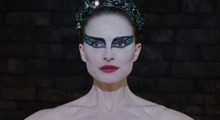




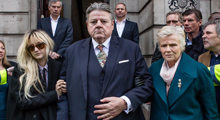

 Nick: Towards the end of the course, I worked as a sound trainee on a documentary/commercial for Toyota, which involved a three-week road trip through Vietnam with lots of off-road driving and documentary pieces in the cities and jungle, which was an amazing experience. That led to another car commercial for Lexus in Spain this year, and I've also been doing some smaller corporate and commercial shoots. I first met one of the recordists I worked for when he gave a guest lecture for our class, so the NFTS has certainly helped to open some doors and got my career going.
Nick: Towards the end of the course, I worked as a sound trainee on a documentary/commercial for Toyota, which involved a three-week road trip through Vietnam with lots of off-road driving and documentary pieces in the cities and jungle, which was an amazing experience. That led to another car commercial for Lexus in Spain this year, and I've also been doing some smaller corporate and commercial shoots. I first met one of the recordists I worked for when he gave a guest lecture for our class, so the NFTS has certainly helped to open some doors and got my career going. Keith: The highlights of studying with the NFTS included the variety of productions I worked on, the places I got to travel to and the people I had the opportunity to work with and learn from. During my time, I was either sound mixer or boom op on at least five full-scale drama shoots and two documentaries, one of which was in Singapore for three weeks. As a small group of eight production sound students, we were in demand across the film school. This meant that we worked with a variety of people in all departments from production managers to sound designers. Understanding what their roles were and how you impact them was an important part of learning.
Keith: The highlights of studying with the NFTS included the variety of productions I worked on, the places I got to travel to and the people I had the opportunity to work with and learn from. During my time, I was either sound mixer or boom op on at least five full-scale drama shoots and two documentaries, one of which was in Singapore for three weeks. As a small group of eight production sound students, we were in demand across the film school. This meant that we worked with a variety of people in all departments from production managers to sound designers. Understanding what their roles were and how you impact them was an important part of learning. Kirsty: I would recommend that someone apply for the Production Sound diploma due to the emphasis on learning through practical experience on set. Students get the opportunity to work on a multitude of productions across many genres, including drama, documentary and television production. I would also recommend the course as it is taught by leading industry professionals, whose experience, insight and wisdom are invaluable for anyone developing their career in production sound.
Kirsty: I would recommend that someone apply for the Production Sound diploma due to the emphasis on learning through practical experience on set. Students get the opportunity to work on a multitude of productions across many genres, including drama, documentary and television production. I would also recommend the course as it is taught by leading industry professionals, whose experience, insight and wisdom are invaluable for anyone developing their career in production sound.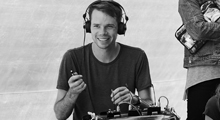





 Oliver: Having made the shortlist a couple of years ago it was great to get on the scheme at the second time of asking. The competition for places is fierce, even more so than at the NFTS, and over the last few years it has launched the careers of writers like Vinay Patel and Charlie Covell so it's very exciting. The scheme itself has been an absolute dream so far, with talks from writers, directors and scripts editors who have worked on some of the biggest productions in film and television over the last decade. I've also been assigned a fantastic script editor from New Pictures (The Missing, Indian Summers) and a development exec from Channel 4 who have helped me to expand what was an embryonic idea.
Oliver: Having made the shortlist a couple of years ago it was great to get on the scheme at the second time of asking. The competition for places is fierce, even more so than at the NFTS, and over the last few years it has launched the careers of writers like Vinay Patel and Charlie Covell so it's very exciting. The scheme itself has been an absolute dream so far, with talks from writers, directors and scripts editors who have worked on some of the biggest productions in film and television over the last decade. I've also been assigned a fantastic script editor from New Pictures (The Missing, Indian Summers) and a development exec from Channel 4 who have helped me to expand what was an embryonic idea. Angelina: If you’re serious about developing as a screenwriter, then the NFTS offers an unparalleled opportunity to examine and refine your own writing, and to work with immensely talented people who are just as passionate about storytelling as you are. You can - and should - read all the screenwriting textbooks, but none of them can teach you how to make specifically *your* writing better. This, in my experience, is what the NFTS excels in.
Angelina: If you’re serious about developing as a screenwriter, then the NFTS offers an unparalleled opportunity to examine and refine your own writing, and to work with immensely talented people who are just as passionate about storytelling as you are. You can - and should - read all the screenwriting textbooks, but none of them can teach you how to make specifically *your* writing better. This, in my experience, is what the NFTS excels in. Nathaniel: I've been lucky enough to be working constantly since I graduated last year. Recently, I've had a short monologue, Special Delivery released on BBC3 as part of the BBC ‘Writersroom's The Break II’ series. My first radio play, Baller, was broadcast earlier this month on BBC Radio 4 and was selected as their 'Drama of the Week'. I wrote Episode 5 of Five by Five, a co-production between Green Door Pictures and BBC Studios, featuring Idris Elba, which will be released on BBC 3 on Monday 27th April. I've also been selected as a trainee writer by Kudos for their new Sky Atlantic show Tin Star, and so will be involved in story lining series two. I've also just had my first feature play commissioned with the Nottingham Playhouse. Finally, my first feature film, Scandinavian Silence, that I co-wrote with director Martii Helde, will be released later this year.
Nathaniel: I've been lucky enough to be working constantly since I graduated last year. Recently, I've had a short monologue, Special Delivery released on BBC3 as part of the BBC ‘Writersroom's The Break II’ series. My first radio play, Baller, was broadcast earlier this month on BBC Radio 4 and was selected as their 'Drama of the Week'. I wrote Episode 5 of Five by Five, a co-production between Green Door Pictures and BBC Studios, featuring Idris Elba, which will be released on BBC 3 on Monday 27th April. I've also been selected as a trainee writer by Kudos for their new Sky Atlantic show Tin Star, and so will be involved in story lining series two. I've also just had my first feature play commissioned with the Nottingham Playhouse. Finally, my first feature film, Scandinavian Silence, that I co-wrote with director Martii Helde, will be released later this year.





 More questions came in thick and fast, from what it was like working with ‘wonderful’ Production Designer, Stuart Craig and his ‘beautiful sets’ to how David picks his cinematographers, “I employ people who inspire me. I’m looking for a partner and ally; a flexible DoP who won’t spend too long lighting!”
More questions came in thick and fast, from what it was like working with ‘wonderful’ Production Designer, Stuart Craig and his ‘beautiful sets’ to how David picks his cinematographers, “I employ people who inspire me. I’m looking for a partner and ally; a flexible DoP who won’t spend too long lighting!”

 “There’s a lot of focus on what’s called the “STEM” approach to education these days. STEM stands for Science, Technology, Engineering, Mathematics and is driven by the increasing demand for employees with related skills, coupled with a lack of engagement from students.
“There’s a lot of focus on what’s called the “STEM” approach to education these days. STEM stands for Science, Technology, Engineering, Mathematics and is driven by the increasing demand for employees with related skills, coupled with a lack of engagement from students.

















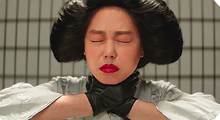






 I have been working on The Death and Life of John F. Donovan, an upcoming Canadian drama directed by Xavier Dolan with a stellar cast including Natalie Portman, Jessica Chastain and Michael Gambon. Tasks have included researching venues for the wrap party for the UK unit and the costume department asked me research and order a pair of shoes for one of the actresses, which I managed to negotiate for free! The art, location, and production departments for The Death and Life of John F. Donovan are all based in the same office. I have been working in the prep period between shooting blocks so there has been a lot of organising to prepare for the next round of filming. I have been doing all the office-based runner jobs including food shops, post runs, coffee rounds, cleaning and tidying, and photocopying and printing, but I have also been able to visit other departments such as costume and help them out too.
I have been working on The Death and Life of John F. Donovan, an upcoming Canadian drama directed by Xavier Dolan with a stellar cast including Natalie Portman, Jessica Chastain and Michael Gambon. Tasks have included researching venues for the wrap party for the UK unit and the costume department asked me research and order a pair of shoes for one of the actresses, which I managed to negotiate for free! The art, location, and production departments for The Death and Life of John F. Donovan are all based in the same office. I have been working in the prep period between shooting blocks so there has been a lot of organising to prepare for the next round of filming. I have been doing all the office-based runner jobs including food shops, post runs, coffee rounds, cleaning and tidying, and photocopying and printing, but I have also been able to visit other departments such as costume and help them out too.
 After working on two different projects for my work experience, I can say that every day is the same, but different. There is plenty of running around, lots of stands to load in and out of trucks, and endless numbers of teas and coffees to make. Although the motions are the same, the context that you are doing them in always differs, and that’s why it never gets boring.
After working on two different projects for my work experience, I can say that every day is the same, but different. There is plenty of running around, lots of stands to load in and out of trucks, and endless numbers of teas and coffees to make. Although the motions are the same, the context that you are doing them in always differs, and that’s why it never gets boring.


 Carlos Ciudad, who now works for Double Negative as VFX Producer, says: “Being part of both the Oscar and the BAFTA winning digital effects team at MPC is a dream come true; The Jungle Book was a joy to work on and the results created by the visual effects teams speak for themselves. I would encourage anyone with a passion for VFX to apply to study Digital Effects at the NFTS as it offers an excellent pathway into this exciting career.”
Carlos Ciudad, who now works for Double Negative as VFX Producer, says: “Being part of both the Oscar and the BAFTA winning digital effects team at MPC is a dream come true; The Jungle Book was a joy to work on and the results created by the visual effects teams speak for themselves. I would encourage anyone with a passion for VFX to apply to study Digital Effects at the NFTS as it offers an excellent pathway into this exciting career.”